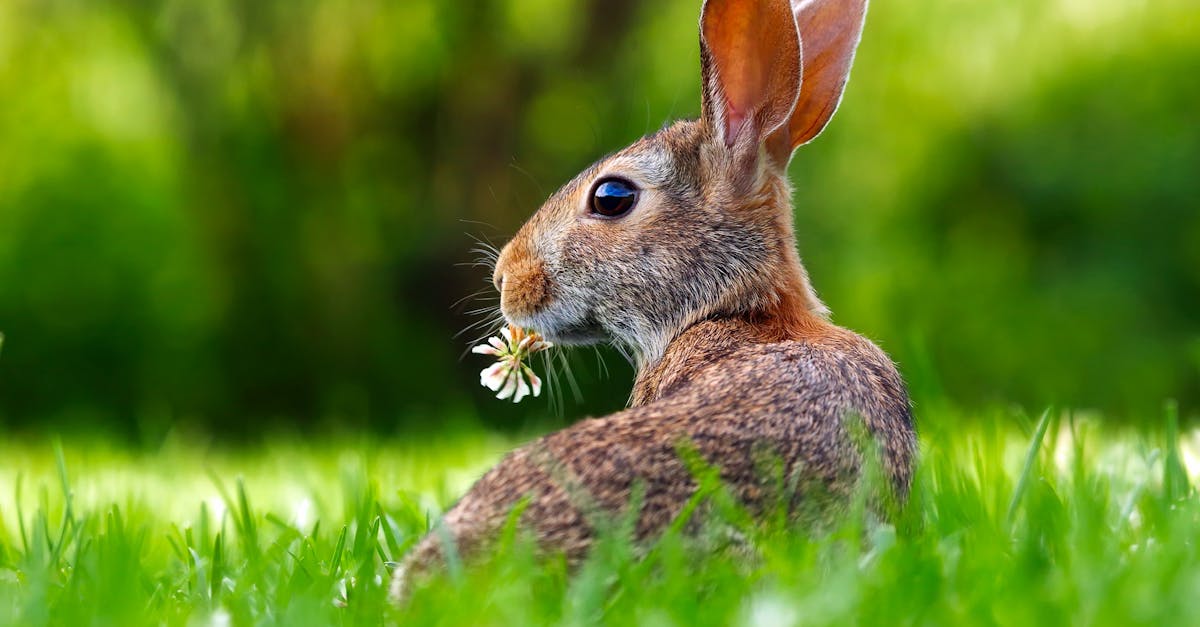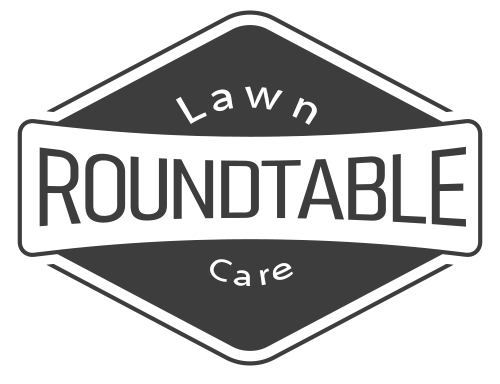Unveiling the Secrets to Banishing Clover: A Comprehensive Guide to a Lush Green Lawn

If your lawn is more green than lush, you’re not alone. Clover is a common problem for homeowners, but it doesn’t have to be. In this article, we’ll discuss the causes of clover dominance and provide some effective solutions to help you get your lawn back in shape.
Clover is a type of legume that can fix nitrogen from the air, making it a valuable addition to any lawn. However, too much clover can crowd out grass and make your lawn look unsightly. If you’re struggling with clover, don’t despair. There are a number of things you can do to get rid of it and keep your lawn looking its best.
The first step is to understand the causes of clover dominance. Clover thrives in acidic, compacted soils. It can also be a sign of nitrogen deficiency in the soil. Once you know what’s causing the problem, you can start to take steps to correct it. These steps may include raising soil pH, improving drainage, and applying fertilizer. If the problem persists, chemical or organic solutions such as herbicides or vinegar can be considered.
Key Insights
- Clover can be beneficial for lawns, providing nitrogen fixation, drought tolerance, and improved soil structure.
- Clover thrives in specific conditions, such as low soil pH, compacted soil, poor drainage, and insufficient nitrogen.
- Cultural practices like regular mowing, watering, and fertilizing can create a healthy environment that discourages clover growth.
- Soil pH adjustment by adding lime can make the environment less favorable for clover.
- Maintaining a healthy lawn, controlling weeds, and addressing underlying issues like poor drainage can prevent clover dominance in the future.
1. The Benefits of Clover in Lawns
Clover is often seen as a weed, but it can actually be a beneficial addition to your lawn. Clover is a legume, which means it has the ability to fix nitrogen from the air. Nitrogen is an essential nutrient for plants, and it helps grass to grow thick and green. Clover also helps to improve soil structure by loosening compacted soil and adding organic matter.
In addition to its nitrogen-fixing abilities, clover is also drought tolerant and can help to reduce water usage. Clover has a deep root system that helps it to access water deep in the soil, even during dry spells. This makes clover a good choice for lawns in areas with limited water resources.
Clover is also a relatively low-maintenance plant. It does not require frequent mowing or watering, and it can tolerate a wide range of soil conditions. This makes clover a good choice for busy homeowners or those who want a low-maintenance lawn.
2. Causes of Clover Dominance
Clover thrives in specific conditions, such as low soil pH, compacted soil, poor drainage, and insufficient nitrogen. If your lawn has any of these conditions, it is more likely to be invaded by clover.
Low soil pH: Clover prefers acidic soils, with a pH of 6.5 or below. If your soil is too acidic, it can be difficult for grass to grow, but clover will thrive. You can raise the pH of your soil by adding lime.
Compacted soil: Compacted soil is soil that has been compressed, making it difficult for water and air to penetrate. This can create an environment that is favorable for clover, but not for grass. You can improve drainage by aerating your lawn.
Poor drainage: Poor drainage can also lead to clover dominance. If your lawn does not drain well, water can pool on the surface, creating an environment that is ideal for clover. You can improve drainage by installing a drainage system or by grading your lawn so that water can flow away from the house.
Insufficient nitrogen: Nitrogen is an essential nutrient for grass, but too much nitrogen can promote clover growth. If your lawn is not getting enough nitrogen, it will be more susceptible to clover invasion. You can fertilize your lawn with a slow-release nitrogen fertilizer to help prevent clover growth.
3. Cultural Practices to Reduce Clover
Proper lawn care practices can help to create a healthy environment that discourages clover growth. These practices include regular mowing, watering, and fertilizing.
Regular mowing: Mowing your lawn regularly helps to keep the grass healthy and thick, which can help to crowd out clover. When you mow, be sure to set your mower to the correct height for your grass type. Mowing too short can stress the grass and make it more susceptible to clover invasion.
Watering: Watering your lawn deeply and infrequently encourages deep root growth, which helps the grass to better compete with clover for water and nutrients. Avoid overwatering, as this can create an environment that is favorable for clover growth.
Fertilizing: Fertilizing your lawn with a slow-release nitrogen fertilizer can help to keep the grass healthy and green, which can help to prevent clover invasion. Avoid using fertilizers that are high in nitrogen, as this can promote clover growth. You should also avoid fertilizing your lawn in the fall, as this can encourage clover growth during the winter months.
4. Soil pH Adjustment
Clover prefers acidic soils, with a pH of 6.5 or below. If your soil is too acidic, it can be difficult for grass to grow, but clover will thrive. You can raise the pH of your soil by adding lime.
Lime is a natural material that is made from limestone or chalk. When lime is added to soil, it raises the pH, making the soil more alkaline. This creates an environment that is less favorable for clover, but more favorable for grass.
To raise the pH of your soil, you can apply lime at a rate of 20 to 50 pounds per 1,000 square feet. Lime should be applied in the fall or winter, when the grass is dormant. After applying lime, water your lawn deeply to help the lime penetrate the soil.
5. Nitrogen Fertilization
Clover is a nitrogen-fixing plant, which means that it can take nitrogen from the air and convert it into a form that can be used by plants. This is why clover can thrive in soils that are low in nitrogen. However, if you fertilize your lawn with a nitrogen fertilizer, you can reduce the amount of nitrogen that clover is able to fix from the air. This can help to reduce clover dominance in your lawn.
When choosing a nitrogen fertilizer, be sure to select one that is slow-release. Slow-release fertilizers release nitrogen over a period of time, which helps to avoid promoting excessive growth. Excessive growth can make your lawn more susceptible to pests and diseases.
To fertilize your lawn, apply the fertilizer according to the manufacturer’s instructions. Be sure to water your lawn deeply after fertilizing to help the fertilizer penetrate the soil.
6. Chemical Control
Clover is a nitrogen-fixing plant, which means that it can take nitrogen from the air and convert it into a form that can be used by plants. This is why clover can thrive in soils that are low in nitrogen. However, if you fertilize your lawn with a nitrogen fertilizer, you can reduce the amount of nitrogen that clover is able to fix from the air. This can help to reduce clover dominance in your lawn.
When choosing a nitrogen fertilizer, be sure to select one that is slow-release. Slow-release fertilizers release nitrogen over a period of time, which helps to avoid promoting excessive growth. Excessive growth can make your lawn more susceptible to pests and diseases.
To fertilize your lawn, apply the fertilizer according to the manufacturer’s instructions. Be sure to water your lawn deeply after fertilizing to help the fertilizer penetrate the soil.
7. Prevention is Key
Maintaining a healthy lawn is the best way to prevent clover dominance in the future. This includes following proper cultural practices, such as regular mowing, watering, and fertilizing. It also includes taking steps to correct any underlying problems, such as poor drainage or compacted soil.
Here are some tips for preventing clover dominance:
-
Mow your lawn regularly: Mowing your lawn helps to keep the grass healthy and thick, which can help to crowd out clover. When you mow, be sure to set your mower to the correct height for your grass type. Mowing too short can stress the grass and make it more susceptible to clover invasion.
-
Water your lawn deeply and infrequently: Watering your lawn deeply and infrequently encourages deep root growth, which helps the grass to better compete with clover for water and nutrients. Avoid overwatering, as this can create an environment that is favorable for clover growth.
-
Fertilize your lawn with a slow-release nitrogen fertilizer: Fertilizing your lawn with a slow-release nitrogen fertilizer can help to keep the grass healthy and green, which can help to prevent clover invasion. Avoid using fertilizers that are high in nitrogen, as this can promote clover growth. You should also avoid fertilizing your lawn in the fall, as this can encourage clover growth during the winter months.
-
Control weeds: Weeds can compete with grass for water and nutrients, which can make your lawn more susceptible to clover invasion. Be sure to control weeds regularly by mowing, pulling, or using herbicides.
What are the benefits of clover in lawns?
Clover is a nitrogen-fixing plant, which means that it can take nitrogen from the air and convert it into a form that can be used by plants. This can help to reduce the need for nitrogen fertilizer. Clover also helps to improve soil structure by loosening compacted soil and adding organic matter. Additionally, clover is drought tolerant and can help to reduce water usage.
What causes clover dominance in lawns?
Clover dominance in lawns can be caused by a variety of factors, including low soil pH, compacted soil, poor drainage, and insufficient nitrogen. Clover prefers acidic soils, so if your soil pH is too low, you may be more likely to have clover problems. Compacted soil can also lead to clover dominance, as it makes it difficult for water and nutrients to reach the grass roots. Poor drainage can also create an environment that is favorable for clover growth. Finally, if your lawn is not getting enough nitrogen, it may be more susceptible to clover invasion.
How can I prevent clover dominance in my lawn?
There are a number of things you can do to prevent clover dominance in your lawn, including: * Maintaining a healthy lawn: This includes mowing regularly, watering deeply and infrequently, and fertilizing with a slow-release nitrogen fertilizer. * Raising the soil pH: If your soil pH is too low, you can raise it by adding lime. This will create an environment that is less favorable for clover growth. * Improving drainage: If your lawn has poor drainage, you can improve it by installing a drainage system or by grading your lawn so that water can flow away from the house. * Controlling weeds: Weeds can compete with grass for water and nutrients, which can make your lawn more susceptible to clover invasion. Be sure to control weeds regularly by mowing, pulling, or using herbicides.
Table of Key Insights
| Key Insight | Description | |—|—| | Clover’s Benefits for Lawns | Clover can provide nitrogen fixation, drought tolerance, and improved soil structure, making it a beneficial addition to lawns. | | Causes of Clover Dominance | Clover thrives in specific conditions, such as low soil pH, compacted soil, poor drainage, and insufficient nitrogen. | | Cultural Practices for Clover Control | Regular mowing, watering, and fertilizing can create a healthy environment that discourages clover growth. | | Soil pH Adjustment and Clover | Raising soil pH by adding lime can make the environment less favorable for clover. | | Prevention of Clover Dominance | Maintaining a healthy lawn, controlling weeds, and addressing underlying issues can prevent clover dominance in the future. |
